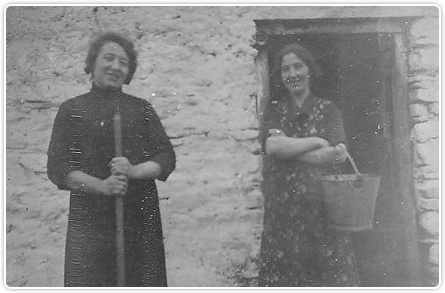TRACING YOUR IRISH ANCESTORS
THREE HOUR TRAINING COURSE
Aims
We will explain the methodology behind genealogy and show you what to do in order to conduct your own research. We will show you how to find and locate genealogical documents (census, church, civil and land records).
Level
This course is open to all levels. It is a fast moving course as there is a lot of information to cover in a short time. You do not need any experience in genealogy, but you will need to have basic computer skills

Objectives
We will show what genealogy sources are available both online and offline for Irish family history research. You will have the skills and knowledge to conduct your own genealogical research independently when you leave the course. The course is broken into two sections: A short history behind each of the four main category of Irish ancestral research (census, church, civil and land records). Using a computer to find family history documents.
VERY IMPORTANT INFORMATION – TO AVOID FEELING DISAPPOINTED
All course participants will all be researching the same Irish family (which we will provide) under our supervision and finding genealogical documents for this family while you are on the course. You can then use your new found knowledge and skills and apply this to your own family research when you leave the course. You will NOT be researching your individual family history during the course as our time is limited. We want you to get the most out of the three hours.
Duration
Three Hours
Capacity
The course is limited to 10 people per session. If you have a larger group arrangements can be made to accommodate your needs.
Genealogy for tourists - Introduction To Genealogy - Trace your Irish ancestors - Conversational Irish Language Archaeology for tourists
Course setting & materials:
The course will be delivered in a meeting room setting with the aid of power point slides and laptops.
We will provide you with the use of laptops for the duration of the course.
You will receive detailed course notes.
You will see samples of documents that you should be able to find for your own ancestors.
In order to make the most of your visit to Ireland and the course.
- Know the ancestor you wish to research
- Calculate approximate dates of birth, marriage and death.
- Having the knowledge of the townland and county of origin of your ancestors can result in a successful research outcome.
Locations:
Kerry.
*We can travel to any location throughout Kerry to deliver the course. We are a complete training unit and will supply all the laptops, projectors and equipment.
Cork, Limerick, Dublin can be discussed upon application.
Topics:
- Getting Started.
- Gathering and collating ancestral information.
- Establishing the identity and location of the townland.
- Defining the difference between civil and ecclesiastical parishes.
- Identifying the poor law union and applying this knowledge to find copies of civil certificates (birth, marriage and death certificates).
- Townland/Surname spelling variations – Tips on how generate research results knowing the variations of spellings of townland and surnames.
- Census records – how to use the information on the census to find more genealogical documents.
- Church records – We will show you what church records are available for research online and offline. Techniques on how to generate research results.
- Land records – We will look at the land records that are available for research online. We will learn about land records which are off-line which may bring your family back to the 1780’s.
- Putting the information together, planning advanced research.
What you will leave the course with:
Following the course you will:
- Have a knowledge and skills to begin your Irish ancestral research.
- Have the ability to research, collate and develop your family tree.
- Have a knowledge of the genealogical sources both online and offline.
- Know the history behind each of the main genealogical categories (census, civil, church, land).
- Have the tools and knowledge to research Irish documents for your own family history.
- Know where the documents are located.
- Locate documents while you are in the country.
- Research your family tree independently.


